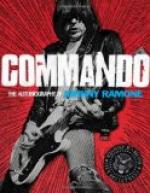We continued shooting at the white kopje, from which the enemy were firing at us. The Captain had a good telescope, through which he could distinctly see the faces of the enemy on the kopje. If a khaki showed himself from behind a rock, the Captain pointed him out to one of our marksmen, Alec Boshoff, who studied the position through the telescope, and took such good aim that the Captain declared he could see the blood on the wounded man’s face.
The burgher who had gone to the kloof tried to persuade the rest to cross with him to the other side, as he was sure the enemy were not inclined to make any resistance there. At length, after twelve, he went with two others to the opposite side, but first told a few of the best marksmen to keep an eye on the reef. They crossed the kloof very cautiously. It was dangerous work, as a shot might come at any moment from behind one of the numerous shrubs or boulders. But they did not advance in an unbroken line. Every time they sought cover behind a rock, from which they watched to see whether the enemy would make their appearance. They did not all three advance at the same time, either, but first one and then the other. Whenever they had advanced a few steps, they stopped to ask the wounded man, who lay groaning there, whether he was alone. When they reached him they put some grass under his head, and gave him some brandy from a flask that they always carried with them. The poor man lay in a pool of blood on a rock under some shrubs. He had been shot through the leg. His name was Lieutenant Pilkington.
The wounded man took hold of the hands of one of the burghers and begged him to stay with him. He, however, considered it his duty to advance, but first assured the poor man that the burghers who were following could also speak English, and would look after him. Most of our men followed the three. The rocks and boulders on the reef that we were climbing afforded us splendid cover from the enemy on the white kopje.
To our left we found some more wounded. My brother took charge of one with a ghastly wound in his head. We made some prisoners there, who were too cowardly to defend themselves. A few of our comrades took them down. We could notice by the guns and rugs that were lying about that the enemy had fled in a panic, or else we should never have ventured to do what we did later on.




